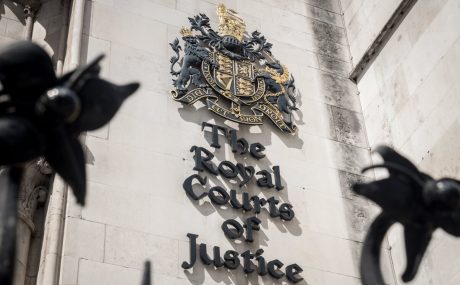Francesca Carrington-Hughes considers the recent Court of Appeal decision in the case of Mills v Mills [2017] EWCA Civ 129.
The judicial winds have increasingly, over recent years, been blowing in favour of fixed term maintenance orders with the result that many joint lives’ maintenance orders have returned to the courts as the subject of variation applications not only in relation to quantum but also duration. However, in Mills v Mills [2017] EWCA Civ 129 the Court of Appeal seemingly bucked the trend and not only refused to limit the duration of the maintenance order but also increased the monthly amount payable.
Facts
Mr and Mrs Mills divorced in 2002, following a 13 year marriage, and reached an agreement as to the settlement of their respective financial claims. Mr Mills agreed to pay Mrs Mills the majority of the liquid capital from the marriage, comprising a lump sum of £230,000, together with spousal maintenance of £1,100 per month on a joint lives basis (i.e. until she remarried, one party died or until further order of the court) and child maintenance of £300 per month for the benefit of their only son until he reached the age of 18 or finished tertiary education.
12 years later, in 2014, Mr Mills applied to vary the part of the order relating to spousal maintenance. Specifically he sought to reduce the level of payments and to change it from a joint lives’ order to a fixed term order (i.e. establish an end date for payments). Meanwhile, Mrs Mills cross-applied for an increase in the quantum of monthly spousal periodical payments because she claimed her needs were not met at the current level of maintenance. (Both parties also applied for capitalisation of the maintenance orders they were seeking.)
After the judge dismissed both applications, and left the original spousal maintenance order unaltered both as to duration and quantum, both parties went on to apply for permission to appeal.
Appeal
Mr Mills’ application for permission to appeal was refused on paper and, even though he attempted to renew his appeal for various reasons (including that guidance was required from the Court of Appeal as to the test to be applied for making a fixed term order), he remained unsuccessful in obtaining permission. Specifically the Court of Appeal disagreed that guidance was required, as they considered the current law was clear, namely that an application for a fixed term order is to be determined by needs.
However, Mrs Mills was granted permission to appeal but only on the ground that the judge’s refusal to increase her maintenance left her unable to meet her basic needs.
The judge at first instance fixed Mrs Mills net income after tax at £1,541 per month and her basic needs at £2,982 per month, leaving a shortfall of £1,441. However, he ordered that spousal maintenance should remain at the same rate of £1,100 per month thereby leaving Mrs Mills short of £341 per month.
Mr Mills contended that Mrs Mills had already received the lion share of the capital on divorce which she had lost as a result of a gross mismanagement of her finances, and that his maintenance obligation had already extended beyond the length of the marriage. Moreover, in the absence of a term order of more than a couple of years, maintenance would continue beyond the tertiary education of the parties’ son. Mr Mills felt that he should be allowed to move on with his life 15 years after the parties’ divorce.
Mrs Mills denied deliberate financial mismanagement. She claimed that she had been unable to rehouse mortgage free in the area nearby their son’s school and due to a number of health issues requiring surgery, her income had been affected and she had taken on borrowing, which she could not repay.
The judge at first instance noted that the wife had unwisely invested in a series of properties, each time moving upmarket with an increased mortgage with the eventual consequence that she exhausted her capital. However, he made no findings of financial mismanagement and said that she had not been “wanton or profligate”. He concluded that the wife would not be able to move to independence, i.e. adjust her expenditure to live within her means.
The Court of Appeal found that the judge at first instance had made an error in principle in deciding that Mrs Mills could not meet her needs but that she would have to adjust her expenditure to reduce those needs, particularly in the light of the fact that the husband could afford to pay increased spousal maintenance whilst supporting his new family. The judge at first instance had failed to (i) justify why he had ordered the status quo of £1,100 to continue, (ii) provide an explanation of how Mrs Mills could meet her basic needs and (iii) explain why she should have to live below the budget that he had accepted.
Consequently, Mrs Mills appeal was allowed and the Court of Appeal ordered that the spousal maintenance be increased to £1,331 per month to meet the deficit of £341 for Mrs Mills’ basic needs.
Conclusion
At first glance, this Court of Appeal decision appears somewhat surprising in the light of recent case law which has increasingly seen the courts encourage parties to move towards financial independence by limiting the number of years for which spousal maintenance is payable. However, spousal maintenance is a complex area of law and the ‘rules’ vary considerably from case to case. Although this case may be the exception to the recent trend of decisions, it emphasises the wide discretion available to the court.
Stephen Foster, Partner and Head of Divorce and Family at Stewarts comments:
“This case reaffirms the court’s approach that marriage is a financial responsibility that endures post-divorce and is a clear example of how spousal maintenance can still be varied, both upwards and downwards, many years after the divorce and financial settlement.
Ultimately, we are reminded that spousal maintenance will be assessed by reference to parties’ needs, which trumps all other factors.”
You can find further information regarding our expertise, experience and team on our Divorce and Family pages.
If you require assistance from our team, please contact us or alternatively request a call back from one of our lawyers by submitting this form.
Media contact: Lydia Buckingham, Senior Marketing Executive, +44 (0) 20 7822 8134, lbuckingham@stewartslaw.com



